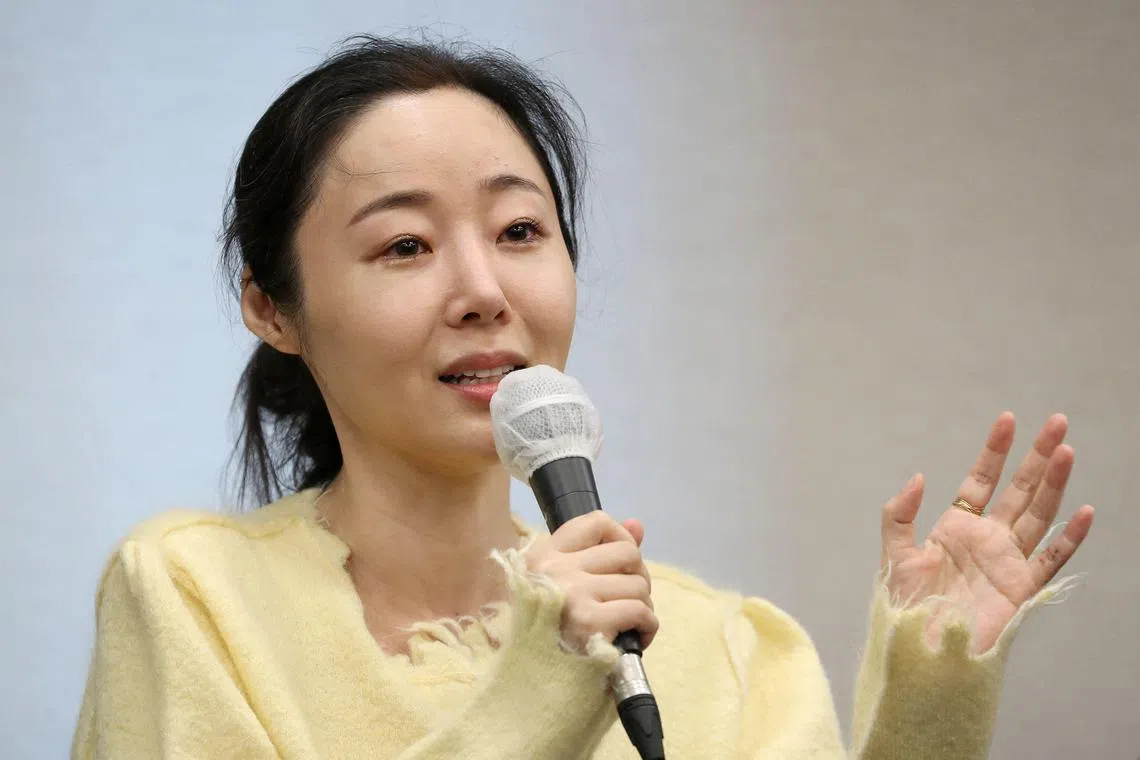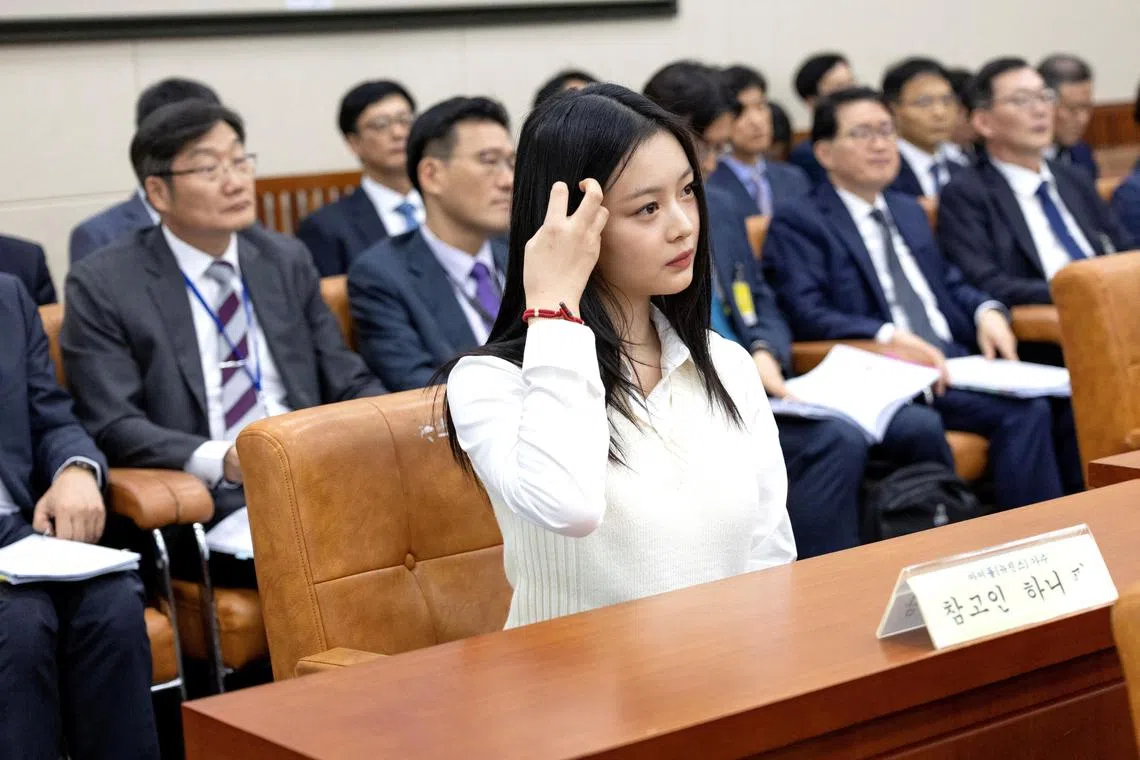Min Hee-jin, star producer of K-pop girl group NewJeans, quits after legal spat with BTS agency
Sign up now: Get ST's newsletters delivered to your inbox

Ms Min Hee-jin resigned from her label following a protracted legal battle with Hybe that has rocked South Korea's K-pop industry.
PHOTO: AFP
SEOUL – The South Korean superproducer behind the chart-topping girl group NewJeans resigned from her label on Nov 20, following a protracted legal battle with Hybe that has rocked the country’s K-pop industry.
Ms Min Hee-jin announced her departure in a statement following what she called a “hellish dispute with Hybe” and vowed legal action against the entertainment company.
The saga began in April, when Hybe launched an audit of subsidiary Ador – NewJeans’ label – and attempted to push Ms Min out, accusing her of breach of trust.
The move sparked a sprawling legal and public relations battle which has seen the boardroom workings of K-pop hashed out in South Korean courts. Ms Min accused Hybe, the agency of K-pop boy band BTS, of copying her star-making formula for a competing girl band.
She slammed Hybe’s action against her as a “witch hunt” in a statement on Nov 20, saying she would take “necessary legal actions” against the company and individuals over the dispute. She added that she would embark on a “new K-pop journey” in future.
Ms Min, who joined the industry in the early 2000s, is widely regarded as one of the most successful producers in K-pop, having worked with stars such as Girls’ Generation, EXO and Shinee.
NewJeans, a K-pop phenomenon that made their debut in 2022 and whose five members are 20 years old or younger, are among Hybe’s most successful K-pop groups, along with BTS.
They have topped global charts, including the Billboard 200, and broke the Guinness World Record in 2023 for being the “fastest K-pop act to reach one billion streams on Spotify”.
The members of NewJeans have publicly shown full support for Ms Min and demanded that she be reinstated as Ador’s chief executive at a live stream in September.
The girl group also sent a formal legal notice to Hybe last week, demanding six specific actions, including reinstating Ms Min, and warning that failure to meet them could lead to the termination of their exclusive contracts.
Ador said in a statement on Nov 20 that it was “regrettable that Min unilaterally notified us of her resignation”.
“Ador will continue to provide our fullest support to NewJeans to help them grow and thrive even further,” it said.
Meanwhile, South Korea’s Ministry of Employment and Labour has ruled that allegations of workplace harassment involving Hanni,

K-pop star Hanni, a member of girl group NewJeans, attends a South Korean National Assembly’s environment and labour committee meeting in Seoul on Oct 15.
PHOTO: REUTERS
The ministry announced on Nov 20 the closure of a complaint filed in October by NewJeans’ fan base, known as Bunnies, which alleged that Hanni was subjected to workplace harassment at Hybe’s headquarters in Seoul in May.
The complaint originated from NewJeans’ live stream on YouTube in September, during which Hanni shared an incident at Hybe’s building. The 20-year-old recounted greeting another K-pop girl group, Illit, and their manager, only to have the manager reportedly dismiss her and say, “Ignore her.”
Concerned fans filed a petition with the labour ministry, demanding an investigation into alleged bullying within the company.
The ministry on Nov 20 cited several factors in its decision, including the absence of specific working hours or locations, the shared financial responsibility between Hanni and Hybe for activities and the nature of her income, which was deemed profit-sharing rather than wages.
The ministry added that Hanni’s tax filings under business income, not earned income, and her lack of subordination to company regulations, such as internal employment rules, further supported the decision. AFP, THE KOREA HERALD/ASIA NEWS NETWORK


